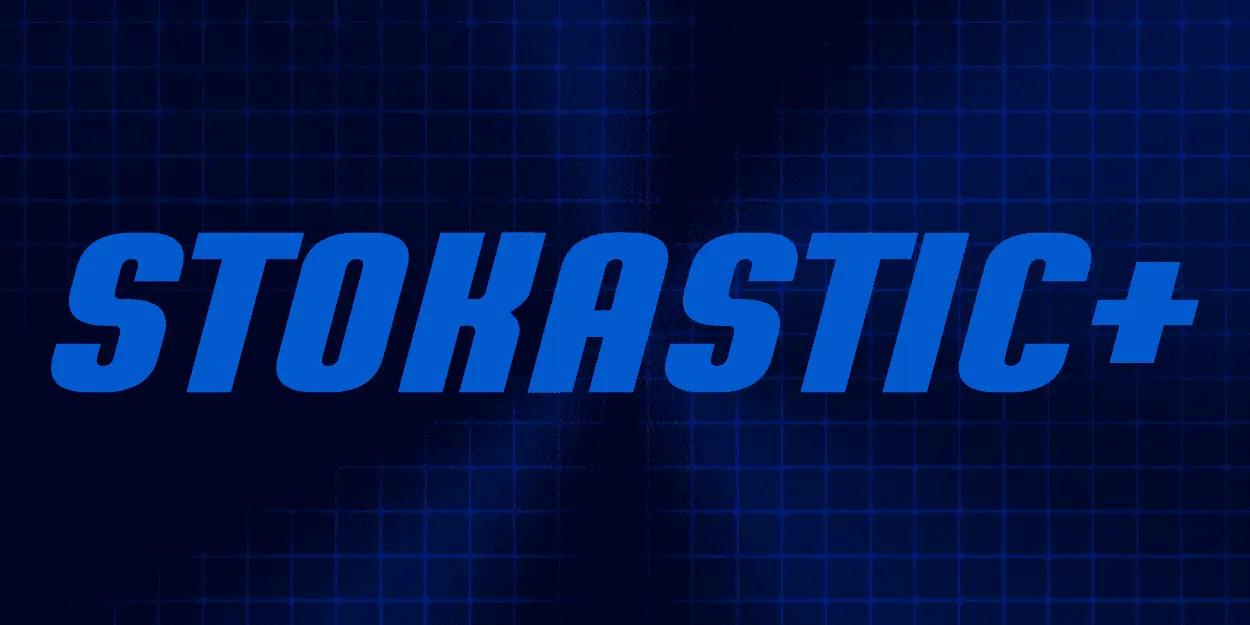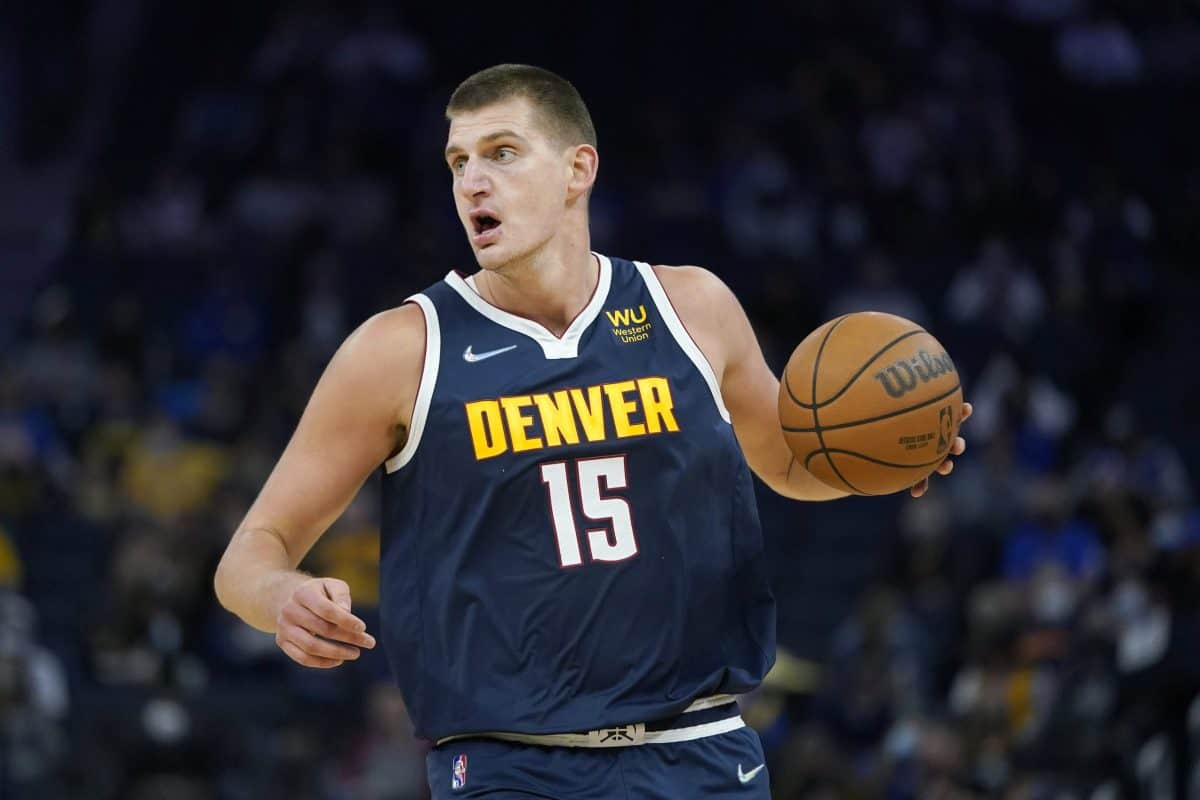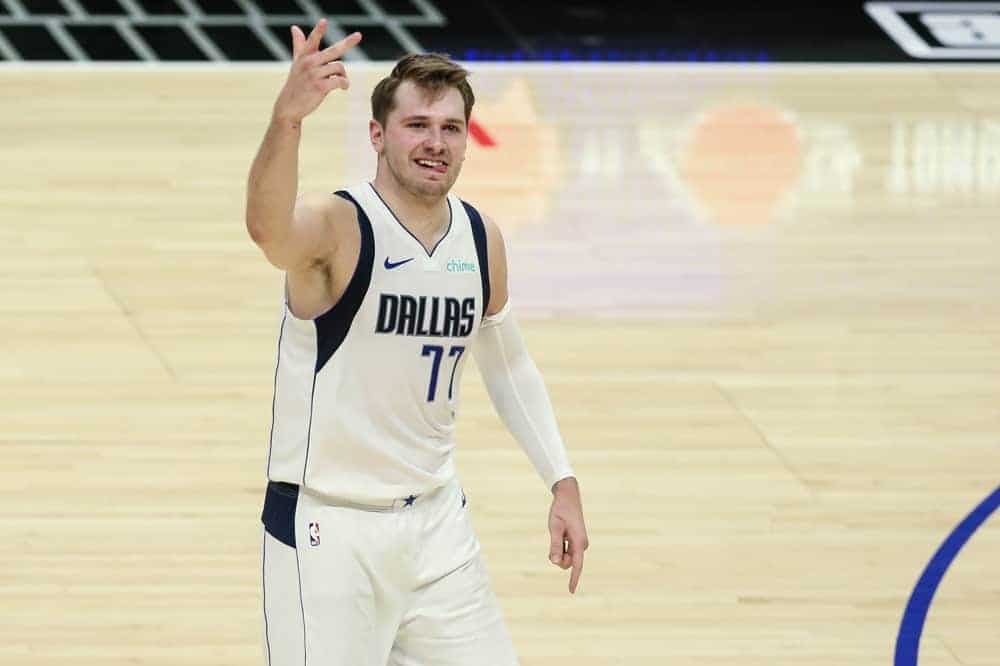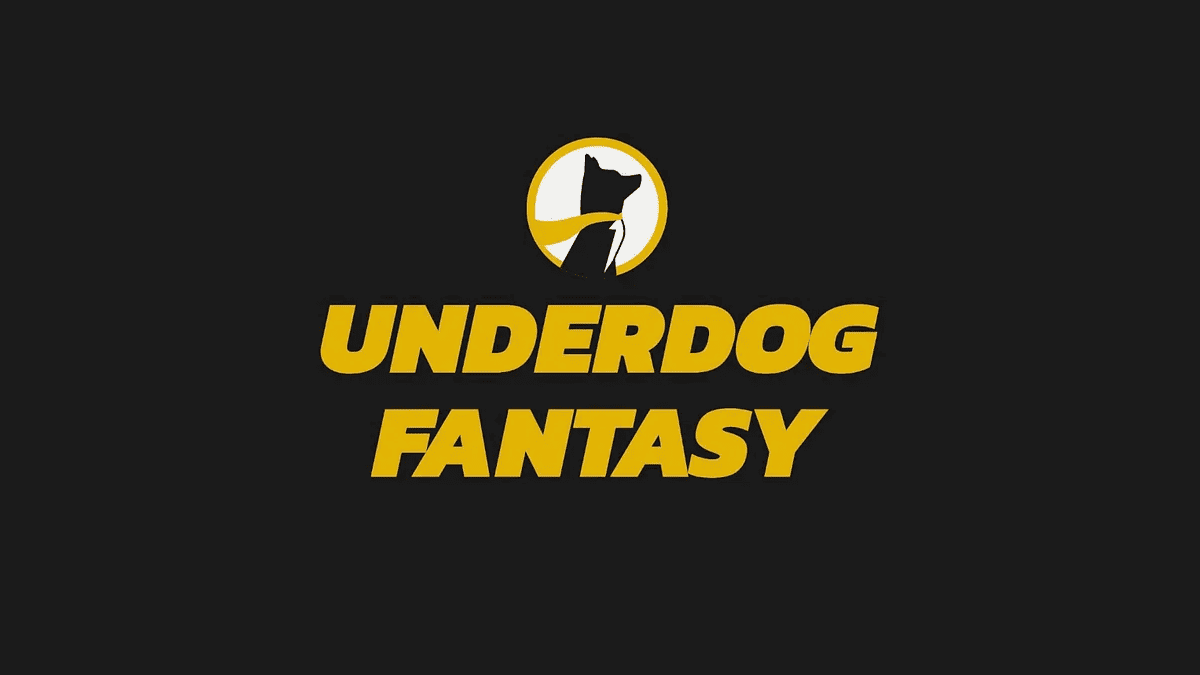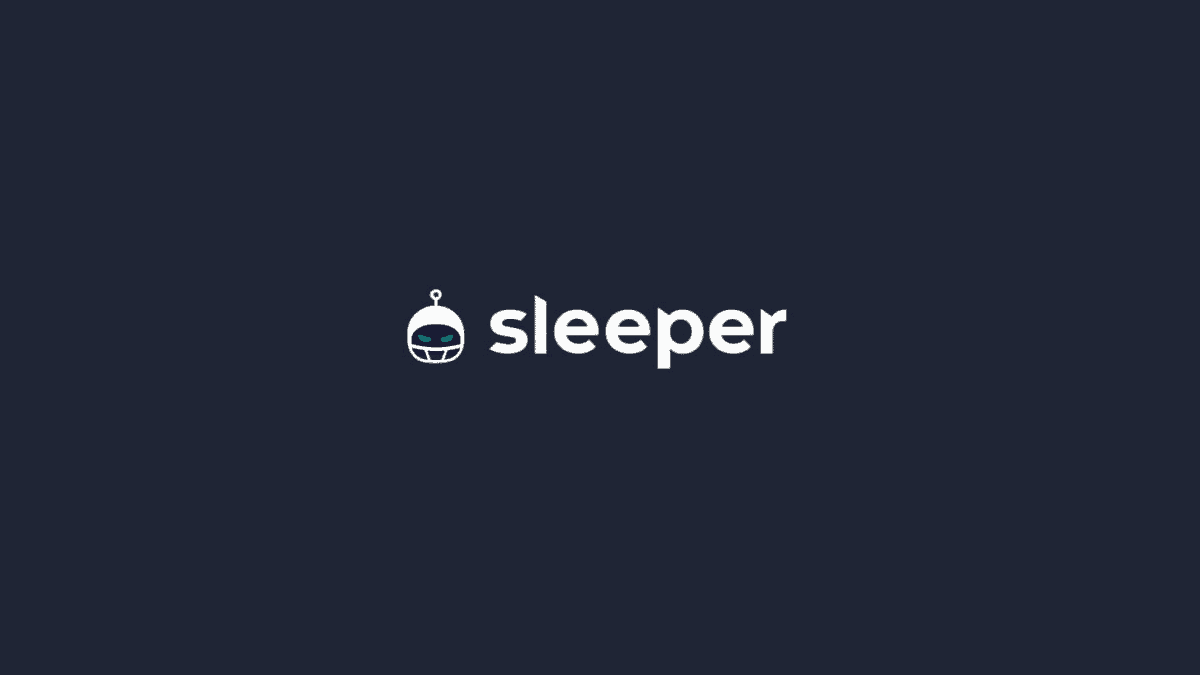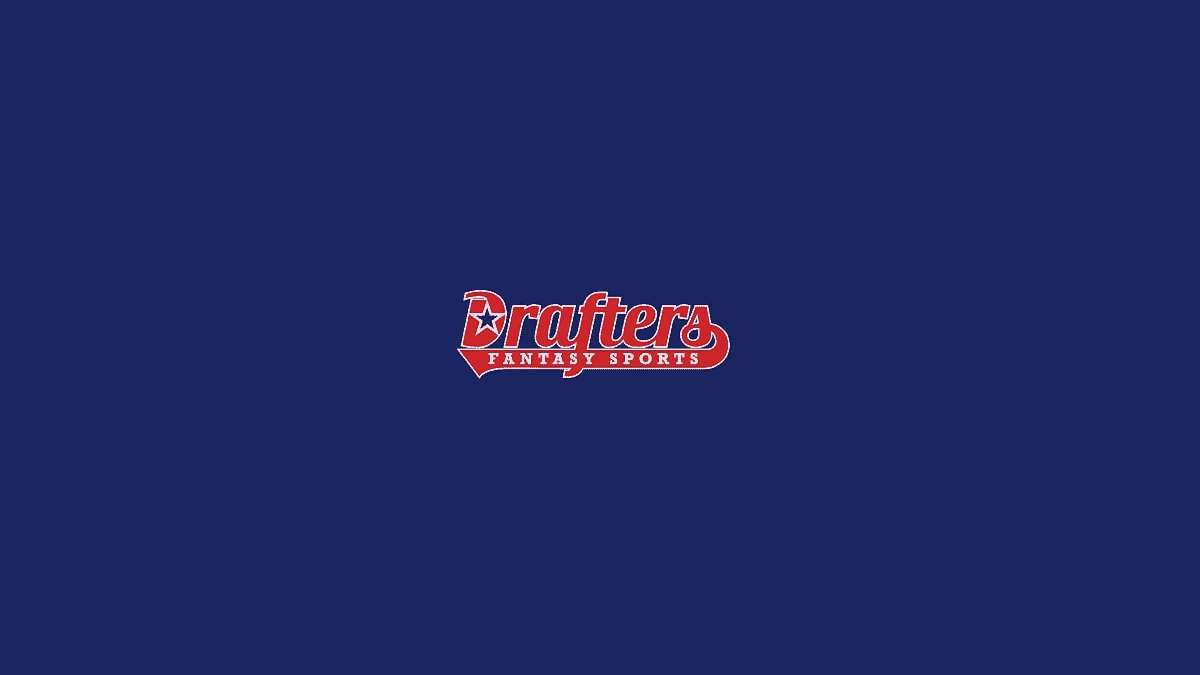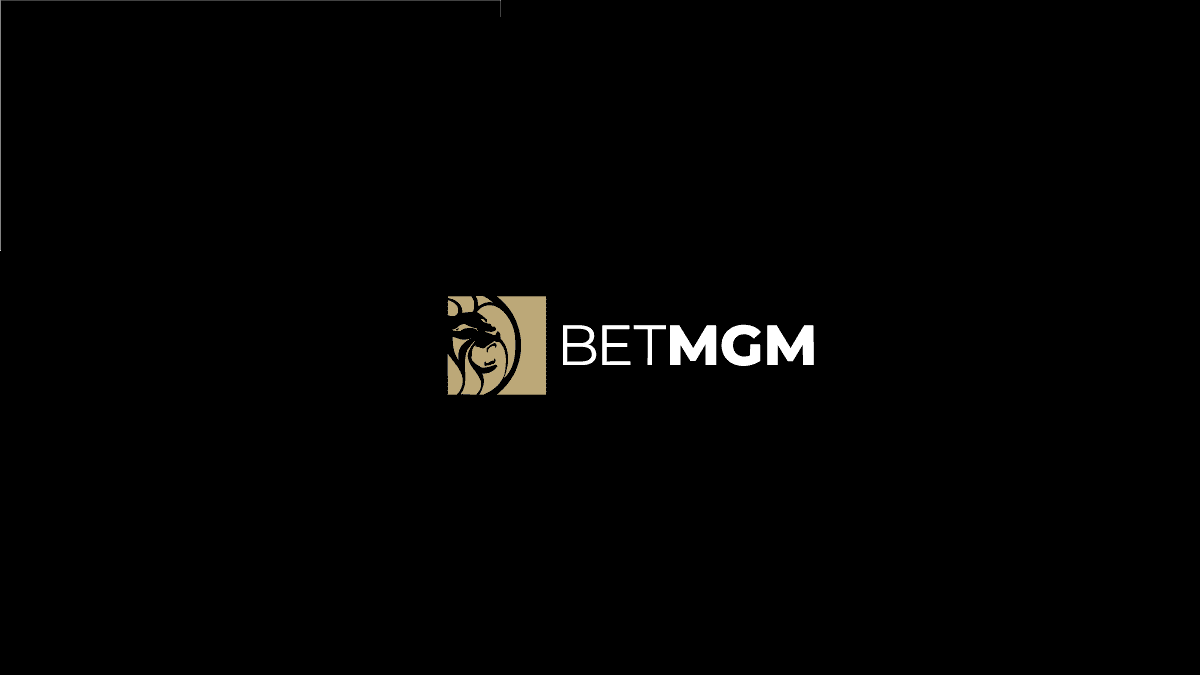Matt Gajewski’s new CFB DFS Picks article comes out every Friday afternoon for your college football daily fantasy needs on DraftKings and more.! And don’t forget to check out the College Football DFS and Betting show every Saturday at 10 a.m. EST.
[PUMPKIN]
Main CFB DFS Slate: DraftKings Breakdown
CFB DFS Matchup: Boston College vs Clemson
CFB DFS Analysis: Boston College (17.5 Team Total)
Offense – Jeff Halfey is the brand-new head coach of Boston College. He is a defensive-minded coach from Ohio State, and he brings in Frank Cignetti as his offensive coordinator, who most recently coached quarterbacks with the Packers. That season, the Packers ranked top five in pass attempts, so this offense might undergo a transformation here. So far, they’ve run 73 plays per game and passed 55.3% of the time. Initially thought to be a concern, Boston College only returned one starting offensive lineman.
Phil Jurkovec ($5,800) – The former Notre Dame quarterback averages a voluminous 37.3 pass attempts per game with 278.3 passing yards. Jurkovec also offers some dual threat ability when he isn’t taking sacks. So far this year, over half of his rushing production has been mitigated by sacks. Jurkovec also has four 300-yard passing games in six total contests this season. While it seems unlikely that Jurkovec reaches these totals in a game against Clemson, it at least makes the skill players viable in run backs on Clemson stacks.
David Bailey ($4,300) – Bailey currently leads Boston College with 70 carries and 79 opportunities. However, he was out-carried by Travis Levy is their most recent game. These extra carries did result from garbage time. Both backs split the work. Levy is the better pass catcher with 23 targets to Bailey’s 10. This doesn’t matter much against a smothering Clemson defense.
Hunter Long ($5,600) – Boston College’s starting tight end leads the team with 58 targets this year. He also posts 75.5 receiving yards per game, making him semi-viable against Clemson
Zay Flowers ($5,300) – A highly athletic gadget player, Flowers has handled 53 targets and seven rushing attempts so far this year. He leads the team with 473 receiving yards and benefits from Boston College’s pass heavy approach.
Jaelen Gill ($4,000) – Jaelen Gill’s route rate has dropped for the fifth consecutive week. Last week, he only participated in 57% of Boston College’s routes. CJ Lewis ($3,400) has actually surpassed Gill, running a route on 96% of drop backs last week. He has at least five targets in three straight games.
CFB DFS Analysis: Clemson (42 Team Total)
Dabo Swinney is the head coach. Tony Elliott is his offensive coordinator. Clemson lives off efficiency, but they’ve run 84.2 plays per game, with a 53.2% pass rate to start the year. For reference, they ran 73.4 plays per game last year (40th) and passed 48.6% of the time (60th). In Trevor Lawrence’s final year, they’re really pushing the pace and embracing a pass heavy approach against weak competition. Clemson handled Miami as their only legit competition this year and now face another winnable matchup against Boston College. Boston College is somewhat of a run-funnel.
DJ Uiagalelei ($6,800) – Trevor Lawrence tested positive for Covid-19, making Uiagalelei the likely starter. Taisun Phommachanh is battling an injury, so there is a reasonable chance that Uiagalelei sees most of the work in this offense to himself. Uiagalelei is a 6-5, 245-pound, five-star quarterback from the 2020 class. He was the top quarterback in the nation. So far, he has completed 12 of 19 passes for 102 yards, while adding another 32 yards on the ground. He is another affordable attachment to an offense that is downright more skilled than Boston College.
Travis Etienne ($8,700) – Travis Etienne handles 18.3 backfield opportunities per game, with at four of those coming from raw targets. In competitive games, Etienne will push for 20 touches as he did last week with 19. On the year, he averages 86.7 rushing yards per game, due to depressed volume in blowouts. If Boston College remains competitive enough for Etienne to see 15+ touches, he will be an excellent play.
Amari Rodgers ($6,500) – Clemson’s starting slot receiver, Amari Rodgers leads the team in targets (43) and receiving yards (86.7). Rodgers also has at least seven targets in four straight games, making him the preferred stacking option with Lawrence.
Cornell Powell ($3,800) – Somehow still priced below $4k, Cornell Powell continues to function as a boundary receiver in Clemson’s offense. Last week, he received seven targets, making it three straight games with at least five. Still, Powell only ran a route on 58% of drop backs.
Frank Ladson ($4,300) – The other boundary receiver opposite Powell, Frank Ladson ranks second on Clemson with 28 targets. Ladson only averages 45.3 receiving yards per game, but his presence on the field also warrants GPP consideration. Ladson ran a route on 67% of drop backs.
Braden Galloway ($4,200) – Tight end Braden Galloway has seen 22 targets so far this year. Galloway ran a route on 63% of Clemson drop backs.
Joseph Ngata ($3,200) – Joseph Ngata originally ran with the starter to begin 2020 before suffering an injury. Most recently, Ngata saw his route share jump from 6% to 29% in Clemson’s most recent game. He may start to chip away at the snap shares of Powell and Ladson, but that remains to be seen.
CFB DFS Matchup: Georgia vs Kentucky
CFB DFS Analysis: Georgia (30 Team Total)
Offense – Kirby Smart hired Todd Monkey to coordinate Georgia’s offense. Before a lost season in Cleveland under Freddie Kitchens, Monken called plays in Tampa Bay. The Buccaneers team threw the ball 63 percent of the time (sixth) and ran 65.9 plays per game (sixth). So far, Georgia is running 79 plays per game and throwing the ball 47.2% of the time. Georgia only returns two full-time starters on their offensive line, but four players have some starting experience all come from a strong recruiting background. The Bulldogs draw a difficult matchup against an experienced Kentucky defense here.
Stetson Bennett ($6,300) – Stetson Bennett has performed well enough to hold off D’Wan Mathis. However, Kirby Smart hinted at JT Daniels potentially getting some time in the near future. Georgia moved Daniels along slowly after a season-ending knee injury last year. Bennett has averaged 31.5 pass attempts per game for 238.3 passing yards. Bennett doesn’t take a ton of sacks and holds 39 cumulative rushing yards this season.
Zamir White ($6,000) – Zamir White will split this backfield with Kendall Milton ($3,300) and James Cook ($4,700). Cook remains the primary receiving back, rendering all of the backs in this situation difficult to trust. Last game, White handled ten carries, to six for Kendall Milton and five for James Cook in a loss to Alabama. While this is a better game environment, the matchup is tough and the time share renders this backfield a pure dart throw.
George Pickens ($5,200) – Freshman breakout and last year’s top wide receiver, George Pickens has largely disappointed in 2020. He ranks third on the team with 21 targets, while recording 140 receiving yards. Pickens continues to pace the team in routes, suggesting positive future regression for the true sophomore.
Kearis Jackson ($5,700) – Kearis Jackson actually leads Georgia with 31 targets (24.4%), despite running the least number of routes among the starters. Jackson runs primarily out of the slot, where he has seen all but one of his targets. Both Pickens and Burton out-targeted Jackson last week and should continue to run ahead of him.
Jermaine Burton ($3,800) – Jermaine Burton ranks second on Georgia in overall targets (22), while running a route on at least 93% of routes in Georgia’s last three games. He is a solid price adjusted play for Georgia in an overall poor game environment.
CFB DFS Analysis: Kentucky (12.5 Team Total)
Offense – Mark Stoops is the head coach of Kentucky, with Eddie Gran in place as the offensive coordinator. Last year, Kentucky on threw 33.3% of the time, but they were using converted wide receiver Lynn Bowden at quarterback. So far this season, Kentucky is running 62.2 plays per game with a 37.0% pass rate. Kentucky is built for the run after returning four starting offensive linemen for a group that ranked second in the entire country in yards per carry. Unfortunately, Georgia has been strong against the run, allowing just 65.5 yards per game on the ground.
Terry Wilson ($5,200) – After repeated poor performances, Terry Wilson could lose his starting job to Joey Gatewood ($4,700) soon. The team already listed both signal callers with an “or” on the depth chart. Wilson apparently landed a minor injury, which could be a factor in the depth chart listing. Georgia is a tough matchup here, but they’re slight pass funnel.
Update – Gatewood will start for Kentucky. He is worth considering as an unknown. If he’s actually good, this is the week to get him discounted.
Chris Rodriguez ($4,600) – Chris Rodriguez will function as the 1A, with Asim Rose rotating in as the 1B. Kavosiey Smoke also plays when healthy. Rodriguez currently holds a 55-45 carry edge and a 56-51 touch share over Asim Rose, Kavosiey Smoke has missed the last three games, but he also remains a factor when healthy. He has been trending in the right direction and should return soon. The backfield looks untouchable.
Josh Ali ($4,600) – A few people made the mistake of falling for Josh Ali’s 35% target share last week but failed to realize that equates to 5.8 targets per game in Kentucky’s low volume, inefficient passing attack. If running stacks for some strange reason, Ali is the guy.
Allen Dailey ($3,800) and DeMarcus Harris ($3,000) – DeMarkus Harris missed last week’s game, but he ranks second on the team with 14 targets. Allen Dailey ranks third with 11. Neither are playable when healthy.
Find The Best College Football Betting Odds All In One Place
Odds shopping is the best way to make sure you’re getting bang for your betting dollars. Please enjoy our new FREE website that shows you what each sports betting odds are in real time. You can sign up, track your bets, get notifications when a line moves and see how much money you’re making over time. Check it out right HERE.
CFB DFS Matchup: Memphis vs Cincinnati
CFB DFS Analysis: Memphis (25.5 Team Total)
Offense – Ryan Silverfield is back for his second season as head coach of Memphis. They also have Kevin Johns in his second year as offensive coordinator of the Tigers. One of the most explosive offenses last year, Memphis returns three offensive line starters in Obinna Eze, Manuel Orona-Lopez, and Dylan Parham. Isaac Ellis also played over 300 snaps for this offense, giving them solid experience up front. So far this year, Memphis averages 84.5 plays per game with a 50.6% pass rate. This will be the Tigers’ toughest match to date against Cincinnati’s elite defense.
Brady White ($9,700) – Playing in the toughest matchup of the year without his number one receiver, Brady White’s $9,700 price tag is egregious. White averages 41 pass attempts per game and 345 passing yards, but Memphis has yet to face a difficult defense. White also offers nothing as a rusher, finishing with negative totals in each of the last two seasons. While volume likely remains for White, the offensive environment has deteriorated rapidly. This keeps his pass catchers in play, but likely removes him from consideration at $9,700.
Rodrigues Clark ($5,700) – Memphis runs a lot of interesting offensive concepts, but Rodrigues Clark plays the traditional back role. He has out-carried Kylan Watkins 79-45 this year and out-touched him 84-54. This has allowed him to average 101.5 rushing yards per game. Clark makes some sense as a solid price-adjusted volume play even in a tough matchup.
Kylan Watkins ($5,400) – Kylan Watkins functions as Memphis’ primary receiving back and rotates around the formation similar to Antonio Gibson last year. However, Watkin’s receiving role has plummeted since he handled 50% of the slot duties in Memphis’ first game. Last contest, he only ran eight routes, which fell below Rodrigues’ 14. Rodrigues is a straight up better play.
Calvin Austin ($5,900) – Without Damonte Coxie in the lineup, Calvin Austin led Memphis if targets each of the past two weeks. Seeing 30 total targets in that span, Austin now averages 106 receiving yards per game. Still, somehow priced at $5,900, Austin looks like a top value on the slate. Notably, Austin began the season as Memphis’ primary slot receiver. With Coxie out, he has played exclusively on the boundary and didn’t even record a single slot snap last week.
Sean Dykes ($7,200) – Memphis’ hyper-athletic tight end, Sean Dykes enters Week 9 a bit expensive at $7,200. He has been out-targeted by Austin 45-29 this year and only saw three targets in his most recent performance, While Dykes continues to play efficient football, cost renders him a boom-bust option here.
Tahj Washington ($4,500) – The boundary receiver opposite Austin, Tahj Washington has also seen an uptick in volume without Coxie. Washington holds target counts of 10 and nine in back-to-back games, making his $4,500 price tag egregiously low despite a tough matchup.
Javon Ivory ($4,000) – Now filling in as Memphis’ primary slot receiver, Javon Ivory look capable of posting the occasional big game in this offense. Last week, Ivory received seven targets, while running a route on 95% of drop backs. Ivory is a 6-2, 180-pound red-shirt freshman. He originally came to Memphis as a three-star recruit.
CFB DFS Analysis: Cincinnati (32 Team Total)
Offense – Luke Fickell is still the head coach for Cincinnati, with Mike Denbrock as his offensive coordinator. Cincinnati returns four starters on the offensive line on a team that ranked among the run-heaviest last year. Cincinnati dealt with injuries last year, so a couple of these guys started out of necessity. They also added Michigan transfer James Hudson, who sat out last year. He will play left tackle and should help. Cincinnati’s best matchup comes against Memphis porous pass defense, that allows 440.2 yards per game. It’s an interesting clash of styles.
Desmond Ridder ($8,300) – Mostly a game manager in his time at Cincinnati, Desmond Ridder draws maybe the best matchup of his entire season against a porous Memphis pass coverage unit. Unfortunately, Ridder only averages 24.8 pass attempts per game with 180.8 yards. Ridder does have 250 rushing yards on the year, but that mostly resulted from his 179 rushing-yard game against SMU last week. Ridder hasn’t actually passed for 300+ yards since his 2018 season and he has only done so twice in his career. However, he hit the 100-yard rushing bonus three times last year and once already this year, keeping him in play as a contrarian option.
Gerrid Doaks ($7,000) – Finally playing in some competitive games, Gerrid Doaks has at least 20 carries in back-to-back games. Memphis defensive strength comes against the run, but Cincinnati still plays run-first football in a positive game environment here. Doaks is worth a look across formats.
Alec Pierce ($4,200) – Suffering an injury earlier this season, Alec Pierce made his return to Cincinnati’s lineup last week and received six targets. Pierce also ran a route on 84% of drop backs, suggesting he is over his injury.
Michael Young ($3,400) – Notre Dame transfer Michael Young acted as Cincinnati’s top receiver in Pierce’s absence. Young still leads the team with 20 targets, but his target volume dropped to four with Pierce back in the lineup. Even with the elevated role, Young has only managed 25.3 receiving yards per game.
Jayshon Jackson ($3,800) – Jayshon Jackson plays the slot for Cincinnati. With Pierce back, he only ran a route on 44% of drop backs. He probably isn’t worth considering here.
CFB DFS Matchup: Kansas State vs West Virginia
CFB DFS Analysis: Kansas State (21.5 Team Total)
Offense – Chris Klieman enters his second season as Kansas State’s head coach. Courtney Messingham is also entering his second season with the program as the offensive coordinator. Both coaches come from North Dakota State. Kansas State runs one of the least exciting offenses in all of football. To start the 2020, they’re running 61.8 plays per game and passing 42.4% of the time. This offense also has major questions with five completely new starters on the offensive line and now a new quarterback. They still have Evan Curl, who was an All-Big 12 contributor. West Virginia plays solid defense, further diminishing the overall intrigue in this game.
Will Howard ($5,900) – With Skylar Thompson injured, backup Will Howard offers dual threat ability and not much else, Howard has 116 rushing yards this year, with most of that coming in an 86-yard game against TCU. Howard did manage an efficient 243 passing yards on 24 attempts last week, but that came against Kansas. He only attempted 19 passes for 117 yards the week before against TCU. This is a low volume pass attack, rending Howard a dart throw at best.
Deuce Vaughn ($7,200) – Deuce Vaughn has somewhat separated himself from Harry Trotter in this backfield. Vaugh has carried 25 times to Trotters 14 over the last two games. This time share is annoying, but Vaughn also popped up for a five-target game last week. Facing a much better defense in West Virginia, other options look superior to Vaughn this week.
Chabastin Taylor ($4,700) –Technically Kansas State’s WR1, Chabastin Taylor has 22 targets this year and averages 3.6 per game. He ran a route on 68% of drop backs and that just won’t cut it.
Malik Knowles ($3,200) – Malik Knowles popped up for a four-target game, but he still ran a route on just 42% of drop backs.
Briley Moore ($4,000) – Briley Moore ran a route on 74% of Kansas State drop backs, but he has just 21 targets this year. Don’t play Kansas State receivers.
CFB DFS Analysis: West Virginia (25 Team Total)
Offense – West Virginia retains Neal Brown as head coach for his second season. They moved former offensive coordinator Matt Moore to assistant head coach, while bringing in former Penn State pass game coordinator Gerad Parker to coordinate the offense. One of the pass heaviest offenses in football last year, West Virginia has continued on the same trajectory this year. They’re running 82.5 plays per game with a 55.2% pass rate. West Virginia returned three of five starting offensive linemen, but they replaced both tackles. Kansas State plays decent defense but has shown cracks in both phases so far this year.
Jarret Doege ($6,900) – A pure pocket passer in West Virginia’s offense, Jarret Doege averages 39.8 pass attempts per game for 277.8 passing yards. A complete non-factor on the ground Doege actually has -52 total rushing yards this year. Kansas State’s defense doesn’t scare anyone, but their slow pace often limits offensive opportunities for opposing players. Without his normal volume to fall back on, Doege looks more like a tournament play in Week 9.
Leddie Brown ($8,100) – Emerging as West Virginia’s bell-cow back, Leddie Brown has at least 23 opportunities in four straight games. Brown is highly active as a pass catcher, with target counts of four, five and eight in his three most recent games. Already averaging 118.4 rushing yards per game, Brown enters this week with some of the safest volume on the entire slate. Paying up for Brown makes plenty of sense.
Sam James ($4,900) – West Virginia’s starting Z-receiver, Sam James has led the wide receiver room over the last two seasons. However, James saw his role scaled back to 31% of West Virginia’s routes after four drops. James remains the team’s target leader with 41 on the season. He also ranks second in receiving yards (224). The team likely goes back to James, but his struggles are noteworthy. Last year, James led the team with 69 catches.
Winston Wright ($6,200) – Winston Wright emerged as Doege’s go-to option with James in the doghouse. Wright plays the H-receiver role in this offense, which typically lines up in the slot. All of Wright’s 37 targets this season occurred in the slot. Wright led the team with 12 targets last week and currently leads the team with 360 receiving yards this season.
Bryce Ford-Wheaton ($4,700) – Ford-Wheaton typically plays the X-receiver role in West Virginia’s offense. Ford-Wheaton averages 69% of West Virginia’s routes on a week-to-week basis. Ford-Wheaton has seen his route rate drop in three straight weeks, down to 59% in their most recent game.
TJ Simmons ($4,000) – TJ Simmons missed last week’s game. He typically plays the slow when healthy in four-wide sets.
Reese Smith ($3,100) – Reese Smith filled in for TJ Simmons last week. He ran a route on 53% of drop backs and received four targets. He now has four targets in back-to-back games.
Sean Ryan ($3,200) – Sean Ryan played more with Sam James benched. Ryan received five targets and parlayed that volume into three catches for 26 yards. Sam James should return to more a full-time role, reducing Sean Ryan’s playing time moving forward.
CFB DFS Matchup: Michigan State vs Michigan
CFB DFS Analysis: Michigan State (14 Team Total)
Offense – Mel Tucker comes over from Colorado to take control of Michigan State. His offensive coordinator is Jay Johnson, who coordinated his offense at Colorado. He ran 72.3 plays per game (53rd) and passed 49.8% of the time (49th). The Spartans ran 84 plays in their first game and passed 54.8% of the time as they battled Rutgers to a loss. Michigan State returned five players with starting experience, despite losing their right tackle Jordan Reid to opt out. They also lost reserve Justin Stevens.
Rocky Lombardi ($5,700) – Having seen Rocky Lombardi at various points over the last couple seasons, he looks very much like a game manager. However, Michigan State’s new look offense appears to embrace an up-tempo, pass-heavy approach. With 43 attempts in Week 1, Lombardi back-doored his way into a 300-yard passing game. Lombardi has one other 300-yard passing game back in 2018, but his career 48.6% completion percentage and 5.2 yards per attempt provide enough context to keep him in dart throw territory.
Jordan Simmons ($5,000) – Jordan Simmons played 27% of Michigan State’s snaps. Most expected Elijah Collins to lead this backfield after he nearly notched 1,000 yards last year. However, Michigan State opted for true freshman Jordan Simmons to lead this backfield. Simmons handled 14 carries and recorded 43 yards.
Connor Heyward ($4,300) – Connor Heyward led the backfield with 40% of the snaps. He received eight carries, but also functioned as the team’s primary receiving back. Heyward’s five targets amounted to 23 receiving yards. Simmons projects to lead this backfield in carries, with Heyward leading in targets moving forward.
Elijah Collins ($3,200) – Elijah Collins played 29% of Michigan State’s offensive snaps. Collins handled nine attempts but looked absolutely horrendous on those totes. Evidenced by his three total rushing yards, Collins did more to lose the job than regain it in Week 1.
Jayden Reed ($6,300) – The former Western Michigan receiver made an enormous debut for Michigan State after sitting out last year due to transfer regulations. Reed tied for a team-leading 12 targets and parlayed that volume into 128 receiving yards. Reed should function as Michigan State’s top pass catcher this year. Reed ran about half of his routes in the slot.
Jalen Nailor ($5,100) – Strictly a boundary receiver in Michigan State’s offense, Jalen Nailor was finally healthy enough to appear in a game. Nailor also received 12 targets, managing 84 receiving yards. Nailor will have big games in a pass-first Michigan State offense.
Tre Mosley ($3,600) – Tre Mosley functioned as a full-time player prior to suffering a leg injury mid-way through Michigan State’s game. Mosley is day-to-day according to Mel Tucker. He only received one target prior to his departure, but he caught 21 balls for Michigan State last year. Mosley was replaced by Ricky White ($3,000) who played mostly in the slot and received three targets himself.
Matt Dotson ($3,900) – Michigan State’s tight end Matt Dotson ran a route on 60% of drop backs and received five targets in the process. He is in dart throw range.
CFB DFS Analysis: Michigan (37.5 Team Total)
Offense – Jim Harbaugh has coached Michigan since 2015, with Josh Gattis now coordinating his offense. Under Gattis last year, Michigan ran 71.2 plays per game (65th) and passed 47% of the time (70th). In their first game, they absolutely demolished Minnesota while running just 56 plays and passing 46.4% of the time. They averaged over eight yards per carry, despite returning only one full time offensive line starter. Michigan State just dropped to Rutgers, setting up the Wolverines for another efficient ground attack.
Joe Milton ($7,700) – Joe Milton threw just 22 passes but racked up 226 yards against Minnesota’s paper defense. Milton actually missed quite a few throws, raising long term questions. However, he provides dual threat ability with 52 total yards after Michigan’s Week 1 contest. Michigan State played solid defense, despite dropping to Rutgers. Milton is a GPP consideration.
Hassan Haskins ($6,400) – Michigan rotated three running backs to a hyper-efficient outing against Minnesota. Hassan Haskins led the way with six carries
Zach Charbonnet ($5,200) – Zach Charbonnet will split with Haskins and Chris Evans this year. Charbonnet handled four carries to Chris Evans’ five carries. Charbonnet played on 32% of snaps, compared to 28% for Evans and 12% for Hassan Haskins. None look like great plays.
Ronnie Bell ($5,300) – Ronnie Bell functioned as Michigan’s primary slot receiver, but Giles Jackson also mixed into the slot on occasion. Bell turned five targets into 74 receiving yards, while running a route on 59% of drop backs.
Giles Jackson ($4,000) – Giles Jackson also participated in the slot, but only rana route on 41% of drop backs. He received five targets for his efforts and parlayed that into 17 receiving yards.
Mike Sainristil ($3,400) – Perimeter receiver Mike Sainristil actually paced Michigan’s wide receivers with a 70% route rate. However, he only received one target. Ronnie Bell should function as the top receiver in this offense after pacing Michigan in targets and receptions (48) last year.
Erick All ($3,800) – A former four-star tight end, Erick All entered his true sophomore season with one reception. However, All is extremely athletic after posting a 4.75 40-yard dash in high school. He stands 6-4, 242-pouns and participated in 81% of Michigan’s routes. Michigan plays old school football with two tight ends and a full back often. Finding a full-time player in this offense is rare and All fits that bill.
Need College Football Betting Advice?
For more college football and sports betting information? Check out the Awesemo betting home page.
CFB DFS Matchup: Iowa State vs Kansas
CFB DFS Analysis: Iowa State (39 Team Total)
Offense – Matt Campbell is Iowa State’s head coach, with Tom Manning coordinating the offense for his second season. To start the year, they’ve run 67.6 plays per game and passed 49.4% of the time. The offensive line returns two full-time starters from last year. Fortunately, Kansas allows 207.6 rushing yards per game. This should allow Iowa State to control this game from the start.
Brock Purdy ($7,200) – One of college football’s biggest disappointments, Brock Purdy has just one 300-yard passing game this year after eclipsing that mark six times last year. He currently averages 31.6 attempts per game for 214 passing yards. Purdy does offer some dual threat ability with 119 cumulative yards this year. With such a smash matchup on the ground, Iowa State likely plays conservative ball with Purdy this weekend.
Breece Hall ($9,100) – Breece Hall draws a dream matchup against a Kansas defense allowing 208 rushing yards per game. Hall has eclipsed 20 touches in each of his last three games, while averaging 141 yards on the ground. Hall also has five targets in the last two games, verifying the receiving ability he displayed last year on 23 receptions. Hall is one of the top running backs on the slate.
Xavier Hutchinson ($5,500) – JUCO transfer Xavier Hutchinson leads Iowa State with 42 targets this year (28.6%). He has 19 targets in the last two games in competitive games. With a likely blowout, Hutchinson may see depressed target volume tonight.
Charlie Kolar ($4,000) – Arguably Iowa State’s top pass catcher, tight end Charlie Kolar enters this contest with 29 targets on the year. However, Kolar missed time to begin 2020, depressing his target volume. Kolar posted 697 receiving yards on 51 catches last year and warrants consideration as a punt play.
Chase Allen ($3,500) – Iowa State runs a lot of 12-personnel with Chase Allen. He isn’t really viable himself, but he also prevents secondary receivers from producing. Tarique Milton remains injured.
CFB DFS Analysis: Kansas (11.5 Team Total)
Offense – Les Miles is Kansas’ head coach and Bren Dearmon remains the offensive coordinator. So far this season, Kansas is running 73.8 plays per game, with a 48.2% pass rate. They’ve struggled with quarterback continuity and overall efficiency, but this Kansas offense is still playing fast. Allegedly, Jalon Daniels will start for the rest of the season. Still, Iowa State’s defense has played solid football this season, making Kansas’ players dart throws.
Jalon Daniels ($4,700) – 17-year old Jalon Daniels is expected to remain the starter for Kansas for the rest of the season. Daniels has modest dual threat ability when he isn’t taking egregious sacks. Daniels hasn’t been given the reigns to Kansas’ offense yet, but he threw 39 times for 207 yards last week. Daniels isn’t a strong option until he starts showing growth within the offense. With that said, there are worse options on the slate.
Velton Gardner ($4,800) – With Pooka Williams taking a leave of absence, Velton Gardner played on 75% of Kansas’ snaps last week. On this elevated snap share, Gardner handled 16 carries and four targets in the pass game. DraftKings failed to price up Gardner ahead of this week’s tilt. Even as severe underdogs, Gardner warrants consideration at a $4,800 price tag.
Andrew Parchment ($3,800) – Last year’s top receiver (831 yards), Andrew Parchment currently paces Kansas with 32 targets. However, this has amounted to just 140 total receiving yards. Parchment saw his route rate drop from 100% to 66% randomly last week. He nearly scored a touchdown and still is Kansas’ top athlete. It will be interesting to see if he bounces back from his catchless, four-target performance.
Kwamie Lassiter ($4,200) – Playing the slot for Kansas, Kwamie Lassiter leads Kansas with 229 receiving yards on 30 targets. Lassiter led Kansas with nine targets last week, while running a route on 98% of the team’s drop backs.
Takulve Williams ($3,300) or Ezra Naylor ($3,200) – Takulve Williams was a surprise inactive last week after playing a majority of Kansas’ snaps to begin the year. Ezra Naylor filled in admirably in his place, recording eight targets. He also ran a route on 89% of drop backs. These guys are so cheap, but they offer almost no upside in Kansas’ neutered offense.
CFB DFS Matchup: Notre Dame vs Georgia Tech
CFB DFS Analysis: Notre Dame (39.5 Team Total)
Offense – To start the year, Notre Dame has run 73.2 plays per game with a 37.7% pass rate. That will happen when facing Duke, USF, Florida State, Louisville, and a Kenny Pickett-less Pittsburgh. They returned all five offensive line starters, and it shows so far. New offensive coordinator Tommy Rees has focused on the run to start the year. Rees has coached QB’s with Notre Dame since 2017 and he notably developed former 3* Ian Book in to the suitable starter he is today. Notre Dame ran 69.5 plays per game last year (78th) and passed 47.6% of the time. In competitive games they should pass more. However, they’ve throttled all of their opponents.
Ian Book ($7,000) – Similar to Brock Purdy, Ian Book has suffered from the low-volume, run-heavy attack employed by Notre Dame to start 2020. Book averages 24.8 pass attempts per game with just 205 passing yards. A modest dual threat, Book has 166 cumulative rushing yards so far this year. Georgia Tech’s biggest defensive weakness is their run defense, pointing to another managerial role Book this weekend.
Kyren Williams ($7,200) – Quietly playing with solid volume, Kyren Williams averages 105 rushing yards per game in Notre Dame’s offense. He also ranks third on the team with 17 total targets, while ranking second with 156 receiving yards. Williams saw a depressed opportunity share last week against Pitt and previously against USF. Aside from those two blowouts, Williams has cruised past 20 touches in most of his contests. Priced in a tier below Hubbard, Hall, and Herbert, Williams quietly provides similar upside.
Javon McKinley ($4,200) – McKinley paces Notre Dame with 18 targets and 171 receiving yards. He may have better numbers in competitive games. This doesn’t not look like one of those games.
Braden Lenzy ($4,500) – Lenzy suffered a hamstring injury in last week’s game. The team already lost Kevin Austin, so injuries are piling up. Lenzy had played a lot of slot for Notre Dame.
Bennett Skowronek ($5,500) – Bennett Skowronek scored a pair of touchdowns on just three targets last week. DraftKings priced him way out of consideration.
Michael Mayer ($3,800) & Tommy Tremble ($3,300) – Notre Dame employs a lot of 12-personnel, but he targets between Michael Mayer and Tommy Tremble have been extremely volatile on a week-to-week basis. Don’t play Notre Dame receivers.
CFB DFS Analysis: Georgia Tech (19 Team Total)
Offense – Geoff Collins is the head coach of Georgia Tech after transitioning away from the triple option last year. Dave Patenaude is back after arguably the toughest job in college football. He was tasked with taking a triple option roster and molding it into a traditional offense. So far this season, Georgia Tech is running 71.5 plays per game with a 42.4% pass rate. Their offensive line has held up and looks decent so far. Their personnel consist of a Vanderbilt transfer at right tackle, who made 32 starts in his career in Devin Cochran. Right guard is a Tennessee transfer in Ryan Johnson, who started 19 games. Center Kenny Cooper got hurt last year, but he started 19 games in his career at Georgia Tech. Left guard is Jack DeFoor, who started nine games last year. Left tackle Zach Quinney started 21 games in his career. Unfortunately, Notre Dame plays excellent defense.
Jeff Sims ($5,500) – A true freshman quarterback for Notre Dame, Jeff Sims has played up-and-down football to kick off 2020. He currently averages 25.2 pass attempts per game with 275 passing yards. The quarterback situation has somewhat deteriorated for Georgia Tech. The Yellowjackets benched Sims after a rough third quarter for former starter James Graham. Sims leash continues to get shorter.
Jahmyr Gibbs ($6,200) – Another early season value, Jahmyr Gibbs has entered a time-share with former starter Jordan Mason ($4,200). Mason played in his first game since Georgia Tech’s debut and handled six carries to Gibbs’ eight. Gibbs still saw four targets and currently ranks fourth on the team overall. However, the matchup against Notre Dame makes all Georgia Tech running backs mere dart throws.
Jalen Camp ($3,900) – Combining all the Tech quarterbacks, this team only averages 28.3 pass attempts per game. Despite seeing a team leading 30 targets, this has only amounted to five targets per game for Jalen Camp. Camp averages just 37.7 receiving yards per game and doesn’t look like a sharp play.
Malachi Carter ($4,500) & Ahmarean Brown ($3,500) – Malachi Carter and Ahmarean Brown average 4.5 and 3.5 targets, respectively. Both barely average 30 receiving yards per game and can’t be counted on in any formats.
TCU vs Baylor
CFB DFS Analysis: TCU (24.5 Team Total)
Offense – Gary Patterson is the head coach of TCU. Sonny Cumbie will again be his offensive coordinator. TCU plays very fast. Last year, they ran 77.4 plays per game (12th) with a 51.7% pass rate (19th). So far this year, TCU is running 77.8 plays per game and passing 50.2% of the time. Baylor has played slower than normal, which may depress overall play volume. Still, TCU has a number of potential avenues to attack.
Max Duggan ($6,800) – A solid dual threat on this slate, Max Duggan’s pass attempts per game should be higher than 29. However, TCU decided to sit him for the first half of their first game. Duggan currently averages 227.5 passing yards, which remains another depressed stat for the young signal caller. Baylor has played solid defense and slow football to start the year, making Duggan more of a fringe play than normal weeks. However, his price and role remain palatable.
Daimarqua Foster ($3,600) – This backfield is a five- or six-man rotation depending on the week. Daimarqua Foster led the group with five carries last week.
Taye Barber ($5,400) – Running a perplexing offense, TCU’s top receiver Taye Barber has just 25 targets this year. He leads the team in targets and receiving yards (205), but these totals aren’t useful for DFS. This looks even more true against Baylor.
Blair Conwright ($4,000) – Blair Conwright is TCU’s second-most targeted receiver with 20. Conwright actually led the team with an 84% route share last week, but it probably doesn’t matter here.
Quentin Johnston ($4,200) – Johnson ran a route on 76% of drop backs, but JD Spielman started to cut into his snaps. Spielman missed last week, but his return would spell more confusion for this receiver room.
CFB DFS Analysis: Baylor (22 Team Total)
Offense – Dave Aranda moves over from LSU to coach Baylor. He hired Larry Fedora to coordinate the offense. Fedora is the failed North Carolina head coach and he most recently worked for Texas as an analyst. In 2018 under Fedora, UNC passed 52.9% of the time (23rd) and ran 74.8 plays per game (43rd). However, this hasn’t translated to offensive efficiency with Baylor. They’re running 70.3 plays per game and passing 54% of the time. Baylor has largely failed to use their weapons effectively, leading John Lovett and Trestan Ebner to briefly opt out. Both have since returned to the program. TCU is a run-funneling defense, allowing 175.5 rushing yards per game.
Charlie Brewer ($6,500) – A major disappointment to start 2020, Charlie Brewer averages just 205 passing yards per game on a healthy 34.3 pass attempts. He hasn’t shown much dual threat ability with 31 yards in three games so far this season. TCU remains a run-funnel defense, meaning Brewer may still struggle to find value despite a decreasing price tag. Brewer hasn’t passed for 300 yards in any of his last ten games.
John Lovett ($4,200) – Squeaky wheel John Lovett sets up as a solid price adjusted play after nearly opting out. Lovett and Trestan Ebner ($6,500) only received four and five carries respectively, potentially influencing their decision to almost leave the program. Dave Aranda convinced them to stay, perhaps by making sure they will play a larger role in future games. Nice look Baylor. Ebner and Lovett see almost identical volume, making Lovett the better play.
RJ Sneed ($5,000) – Baylor’s pass catchers go as Charlie Brewer goes. Leading receiver RJ Sneed averages 8.3 targets per game, but only 56 yards. Better options remain on this slate.
Gavin Holmes ($4,200) – Gavin Holmes will play the slot for Baylor, but he averages a mere 33 yards per game on 7 targets.
Tyquan Thornton ($4,000) – Tyquan Thornton is more of a downfield threat, which doesn’t match Brewers game-managerial skill set. Thornton has 15 targets in his last two games, but only 67 total receiving yards on the year. He is the only one with upside, but Brewer hurts the offense.
LSU vs Auburn
CFB DFS Analysis: LSU (33 Team Total)
Offense – LSU underwent some major changes this offseason, including the losses of co-offensive coordinator Joe Brady, Joe Burrow, Clyde Edwards-Helaire, Justin Jefferson, four starting offensive linemen, defensive coordinator Dave Aranda and nine players with starting experience on defense (Patrick Queen, Michael Divinity, Jacob Phillips, K’Lavon Chaison, Rashard Lawrence, Breiden Fehoko, Grant Delpit, and Kristian Fulton). To make matters worse, Ja’Marr Chase opted out. Steve Esminger remains in place as offensive coordinator. LSU has run 74.2 plays per game, while passing 54.4% of the time. The offense looks exactly the same without the Joe Burrow efficiency. Making matters worse, Auburn plays solid defense.
Myles Brennan ($7,500) or TJ Finley ($7,300) – Myles Brennan hasn’t practiced yet this week and looks likely to miss his second-consecutive game. This means 6-6, 250-pound freshman TJ Finley should start again. In his lone game action, Finley completed 17 of 21 passes for 265 yards and a pair of scores. Finley also added 24 rushing yards and makes for a solid price-adjusted play in LSU’s pass happy offense.
Tyrion Davis-Price ($6,100) – With Finley starting in LSU’s most recent game, the Tigers took a run heavy approach. Tyrion-Davis Price handled 222 rushing attempts, while backfield mate John Emery ($5,800) saw 18 himself. Neither back recorded a target, but LSU enters this contest as a slight favorite pointing to a run-heavy approach. These two backs are middling considerations for me at appropriate prices.
Terrace Marshall ($7,800) – LSU’s clear WR1, Terrace Marshall’s 36 targets equate to a 25.7% target share and 8.8 targets per game. Marshall is also averaging 128 receiving yards per game, making him a 100-yard bonus threat on a weekly basis.
Arik Gilbert ($4,100) – LSU’s star freshman tight end Arik Gilbert ranks second on the team with 21 targets. His route share has hovered around 50% in recent weeks, raising some concerns. However, most of these LSU receivers continue to rotate.
Jaray Jenkins ($4,300) – Jaray Jenkins ranks third on LSU in targets (15), but he has actually run fewer routes than Racey McMath ($3,400). McMath sits at 12 total targets this year, but his 66% route rate remains significantly better than Jenkins 35% route rate.
CFB DFS Analysis: Auburn (30.5 Team Total)
Offense – Gus Malzahn remains head coach of Auburn, but he named Chad Morris their new offensive coordinator. Morris coached Arkansas the last two season with little success. His inefficient play calling has trickled down to the Tigers this year. Auburn runs 73 plays per game while passing 43.6% of the time. However, Auburn’s play volume jumped to 72 against Arkansas, 86 against South Carolina, and 79 against Ole Miss. The team struggled with play volume against Kentucky and Georgia to start the season, but perhaps they can move a little faster in better matchups. Auburn essentially replaces their entire offensive line and returns just one player with any starting experience. LSU’s defense remains formidable, despite the losses.
Bo Nix ($7,100) – Another game manager style quarterback, Bo Nix averages 221 passing yards per game despite enormous volume. He currently throws 34.8 times per contest, but can’t seem to connect with his elite weapons. Nix offers some dual threat ability with 193 total rushing yards. However, LSU’s pass defense is stifling and Nix looks unlikely to find advantages.
Tank Bigsby ($6,900) – Freshman sensation, Tank Bigsby continues to pull away from DJ Williams and Shaun Shivers in the Auburn backfield. Last week, he saw a career-high 24 carries, now putting him to 431 rushing yards on the year (86.2 per game). Bigsby hasn’t been targeted in his last two games now that, but he saw seven targets in a game previously this year. With his share of the backfield growing, he deserves consideration in all matchups.
Seth Williams ($6,000) – Now appropriately priced, NFL ready wide receiver Seth Williams averages 10.6 targets and 88 receiving yards per game. He still remains too cheap.
Anthony Schwartz ($4,900) – Playing with verified 4.34 speed, Anthony Schwartz provides a direct compliment to Williams. Schwartz averages 10.8 targets per game, but only 58.8 receiving yards. Auburn uses Williams more down field, but both are solid plays.
Eli Stove ($4,800) – Eli Stove remains a distant third in the Auburn offense. Priced just $100 below Schwartz, finding the extra salary makes more sense than playing Stove.
Indiana vs Rutgers
CFB DFS Analysis: Indiana (31.25 Team Total)
Offense – Tom Allen has coached Indiana since 2016. This year, he promoted tight ends coach Nick Sheridan to offensive coordinator. This is the first play calling gig for Sheridan and he ran 74 plays, while passing 51.6% of the time. Indiana returned three starters on the offensive line this year.
Michael Penix ($6,200) – Making his 2020 debut, Penix managed a horrific 170 passing yards on 36 pass attempts. Penix also took three sacks leading to -18 rushing yards. He draws a more favorable matchup in this spot, potentially putting him back into play. Penix was initially recruited as a dual threat quarterback, so ceiling game certainly remains in his arsenal.
Stevie Scott ($7,400) – One of the premier bell-cow backs in the Big Ten, Stevie Scott has accounted for back-to-back 1,000 yards seasons. Beginning his 2020 season with an inefficient 57 on 20 carries, Scott enters a match against Rutgers as ten-point favorites. With some of the best volume on the slate, Scott is a solid option.
Whop Philyor ($5,400) – Indiana’s top receiver last year, Whop Philyor narrowly missed a 50+ yard bomb against Penn State. Philyor received nine targets for his efforts, but only racked up 36 yards. He is a nice bounce back candidate on this slate. Philyor will run a majority of his routes from the slot
Ty Fryfogle ($4,100) – Another full-time receiver in Indiana’s offense, Ty Fryfogle received a team-leading ten targets and ran a route on 95% of drop backs. Fryfogle plays primarily on the boundary, but he occasionally mixes into the slot.
Miles Marshall ($4,300) – Marshall entered concussion protocol, but he looked like the early favorite for WR3 duties. He remains a name to monitor prior to kickoff.
Peyton Hendershot ($3,600) – Peyton Hendershot is an athletic tight end for Indiana that often runs out of the slot. Hendershot only saw four targets last week, but he ran a route on 90% of drop backs. He finished second on Indiana in receiving last year (622 yards) and will pop up for big games throughout he year.
CFB DFS Analysis: Rutgers (21.25 Team Total)
Offense – Greg Schiano debut as Rutgers’ head coach last week with an upset over Michigan State. He formerly coached Rutgers in the early 2000’s. Sean Gleeson is his offensive coordinator after coordinating Oklahoma State’s offense last year. That Oklahoma State team ran 72.8 plays per game (50th) and passed 40.7% of the time (100th). So far this year, they’ve ran 63.2 plays and passed 40.1% of the time.
Noah Vedral ($6,100) – The UCF, then Nebraska transfer Noah Vedral started for Rugters last week. He passed for 169 yards on 28 attempts, while adding 24 rushing yards. Vedral was initially recruited back in 2017 as a dual threat. He displayed a little bit of that, but he has now failed to latch on at two separate programs. He doesn’t seem to possess much talent or a ceiling for DFS outside of a random 100-yard rushing game (highly unlikely).
Isaih Pacheco ($6,800) – Isaih Pacheco led Rutgers with 19 rush attempts for 64 yards last week. Aaron Young ($3,200) mixed in for ten carries himself. However, Young only averaged 2.0 yards per carry. Pacheco played on 68% of Rutgers’ run plays, compared to 38% for Young. This is a tough spot to analyze with Indiana allowing 250 rushing yards last week, but Rutgers playing as ten-point underdogs.
Aron Cruickshank ($3,800) – Wisconsin transfer Aron Cruickshak tied for a team-leading six targets last week. Often used as a rusher and gadget player, Cruickshank still only ran a route on 61% of drop backs. Indiana defended the pass fairly well, so none of these Rutgers receivers provide much intrigue.
Bo Melton ($4,300) – Bo Melton also received six targets and ran a route on 97% of Rutgers drop backs. He remains the top price adjusted option for a low volume, inefficient pass attack.
Shameen Jones ($4,800) – Shameen Jones played just as much Melton, but he only received three targets. This may positively regress, but Melton is a straight up better target at the moment.
Mississippi vs Vanderbilt
CFB DFS Analysis: Mississippi (34 Team Total)
Offense – Lane Kiffin heads over to Ole Miss after coaching at FAU. Kiffin also hired Jeff Lebby as his offensive coordinator, who comes over from UCF. They run a similar offense in pace and pass rate. Ole Miss was set to return four of five starters on the offensive line, but center Eli Johnson opted out. Still Nick Broeker was a freshman all-American and new center Ben Brown didn’t allow a single QB pressure last year. So far this year, Ole Miss averages 82.4 plays per game and a 40.8% pass rate. Vanderbilt allows 211 rushing yards per game to opponents.
Matt Corral ($8,500) – After a red hot start to 2020, Matt Corral has failed to eclipse 200 passing yards in each of his last two games. Corral had never eclipsed 300 passing yards in any contest until this season. Still, Corral has played semi-efficient football, completing 67.3% of his passes 287.4 passing yards per game. He also provides dual threat ability with 258 total rushing yards in five games.
Jerrion Ealy ($6,600) & Snoop Conner ($4,300) – Jerrion Ealy and Snoop Conner take on a Vanderbilt defense allowing 211 rushing yards per game. With Ole Miss playing fast and run-heavy football, both Ealy and Conner have racked up significant volume this year. Ealy currently averages 19.2 touches per game, while Conner comes in at 14.2. Both are priced appropriately for their given roles and Conner actually looks like a viable value play on this week’s slate.
Elijah Moore ($8,400) – One of the top wide receivers in the country, Elijah Moore averages 11.6 targets per game with 118.2 receiving yards. After going over 1,000 yards last year, Moore looks like to do the same here. Moore plays the slot for Ole Miss and finds an advantageous matchup here.
Jonathan Mingo ($4,900) – While Jonathan Mingo continues to play a full-time role in Ole Miss’ offense, the 40.8% pass rate renders Mingo a boom/bust player. Mingo already has two separate nine target game, but he also has another two below three. Mingo remains a dart throw on a weekly basis.
Kenny Yeboah ($6,400) – Elevated by early season production, Kenny Yeboah has quieted of late. Still, Yeboah remains one of the country’s elite pass catching tight ends. He currently averages 87.6 receiving yards per game on 4.4 targets. Regression will come for Yeboah sooner rather than later.
CFB DFS Analysis: Vanderbilt
Offense – Derek Mason is the long-time head coach of Vanderbilt. Mason recently hired Todd Fitch to coordinate his offense. Through two games, Vanderbilt has struggled with efficiency. They average 67.7 plays per game and pass the ball 43.8% of the time. Ole Miss has a horrible defense, but Vanderbilt’s level of skill is horrific. The Commodores still might not be able to keep up.
Ken Seals ($5,000) – Ken Seals for a Vanderbilt team with a modest team total this week. Seals has just 411 passing yards through three games and absolutely no dual threat ability. If completely punting quarterback just play Gatewood.
Jamauri Wakefield ($4,200) – Vanderbilt’s backfield by committee featured Jamauri Wakefield and Keyon Henry-Brooks ($3,900) last week. Brooks out-carried Wakefield 13-6. Muddying the backfield further, Ja’Veon Marlow (4,000) looks likely to return from injury. This potential three-man committee looks like a nightmare for DFS. This remains true despite Ole Miss allowing over 250 rushing yards per game.
Ben Bresnahan ($3,700), Cam Johnson ($4,200) &Amir Abdur-Rahman ($4,100) – Each of Bresnahan, Johnson and Abdur-Rahman has 13 targets through three games this year. Johnson technically leads the group with 127 yards, but none of these pass catchers provides GPP winning upside. Again, Ole Miss plays horrible defense, but Vanderbilt is equally as bad on offense.
Texas vs Oklahoma State
CFB DFS Analysis: Texas
Offense – Tom Herman remains the head coach of Texas, but Mike Yurcich comes over as the offensive coordinator after coordinating Ohio State’s passing game last year. So far this year, Texas is running 78 plays per game and passing 52.3-percent of the time. They draw a tough matchup against a strong Oklahoma State defense in this spot.
Sam Ehlinger ($9,900) – The most expensive player on the entire slate, Sam Ehlinger faces arguably the top defense in the Big 12. While Ehlinger has averaged 37 pass attempts and 295.8 passing yards per game, Oklahoma State has allowed just 176 passing yards to opposing offenses on a per game basis. Ehlinger currently leads Texas in rushing yards, but that likely still doesn’t help him pay off a $9,900 salary.
Keaontay Ingram ($5,100) – Keaontay Ingram technically leads this backfield, but Ehlinger actually leads the team in rushing yards. Ingram has rotated with Roschon Johnson and Bijan Robinson as well. This is a situation to avoid in a tough matchup.
Joshua Moore ($6,700) – Joshua Moore leads Texas in target (34) and receiving yards (328). However, Texas has embraced the run in recent weeks, leaving Moore with just three targets in Texas’ most recent game. Fotunately, Moore’s targets remained intact. Despite the semi-expensive price tag, he is the only full-time receiver in the offense.
Jake Smith ($4,800) – Making his return from injury, Texas’ primary slot receiver Jake Smith only ran a route on 47% of drop backs. He received three targets on these plays, but this still makes sense a boom/bust option. Smith’s role likely grows as he continues to heal.
Brennan Eagles ($4,500) – Originally splitting time with Tarik Black, Brennan Eagles ran a route on 60% of Texas’ drop backs last week. Eagles only received four targets on these routes, but he actually ranks second on the team in overall targets (23). Eagles still looks like a tough sell in this matchup.
CFB DFS Analysis: Oklahoma State (27 Team Total)
Offense – Mike Gundy’s Cowboys leaned on the run more last year, moving from Mason Rudolph to Spencer Sanders. Oklahoma State only returns one full-time starter (left tackle). However, their right tackle has four starts and their center has five starts. Their projected right guard is a West Virginia transfer with two years of starting experience, so Chuba Hubbard should be fine. Through three games, Oklahoma State has run 77.5 plays per game and passed 35.5% of the time. Texas has also played fairly strong defense to start the year.
Spencer Sanders ($6,600) – Spencer Sanders returned to Oklahoma State’s starting lineup after battling an injury early in the season. Lackluster as a thrower, Sanders has never eclipsed 300 passing yards in his career. However, Sanders did have a pair of 100-yard rushing games last year, making his a dart throw consideration in GPP’s with his falling price.
Chuba Hubbard ($8,000) – One of college football’s premier three-down backs, Chuba Hubbard averages 120.3 rushing yards per game on 24.8 opportunities. Still priced in an affordable range, Hubbard has eclipsed 20 touches in every game this season. For those with the salary, Hubbard also presents a solid DFS building block.
Tylan Wallace ($7,100) – Running a slow and run-based offense, all receivers would be unusable if Tylan Wallace didn’t have a 38% target share. Because most of the team’s targets are funneled through Wallace, he remains a worthwhile play on a weekly basis. Wallace nearly posted 1,000 yards receiving last year until he tore his ACL. He now has exactly 11 targets in three straight games.
Virginia Tech vs Louisville
CFB DFS Analysis: Virginia Tech
Offense – Justin Fuente remains head coach of Virginia Tech and Brad Cornelsen remains his offensive coordinator. Playing with mostly dual threats the last couple year, Virginia Tech hasn’t changed their style of play So far this year, the Hokies average 70.6 plays per game, with a 36.8% pass rate. Still, they managed solid efficiency, aside from last week’s debacle against Wake Forest. Louisville struggles to defend the run, allowing 187.3 yards per game. This plays directly into Virginia Tech’s preferred offensive style.
Hendon Hooker ($8,800) – Arguably the top dual threat quarterback on this slate, Hendon Hooker’s price tag has jumped to $8,800. Hooker doesn’t offer much as a passer with just 21 attempts per game. However, he already has 291 rushing yards on the year and averages an absurd 6.5 yards per carry (this includes negative sack yardage). Hooker shouldn’t be played in the same lineup as Khalil Herbert, but he is still in play.
Khalil Herbert ($7,900) – The aforementioned Herbert has played well to start 2020. He averages 131.2 rushing yards per game on just 15 carries per game. Interestingly, Virginia Tech increasingly used Raheem Blackshear ($3,600) to spell Herbert in last week’s loss. Interestingly, Herbert played on 76% of run plays, while Blackshear played on 50% himself. The split was similar in the pass game.
James Mitchell ($5,200) – Another low-volume passing attack, tight end James Mitchell looks like the top pass catcher on this offense. However, he only sees 5.2 targets per game, while reeling in 53 yards. Virginia Tech might find themselves in a shootout here, potentially bringing some of these players into stacking consideration.
Tayvion Robinson ($4,600) – The top actual wide receiver on Virginia Tech, Tayvion Robinson remains tied with Mitchell at 28 targets on the year. Robinson occasionally handles carries out of the backfield perhaps providing another avenue to score fantasy points.
Tre Turner ($3,800) – Banged up earlier this year, Tre Turner remains a solid role player for Virginia Tech’s offense. He can be targeted as a punt stacking option with Hooker.
CFB DFS Analysis: Louisville (32 Team Total)
Offense – Scott Satterfield enters his second season as head coach, along with offensive coordinator Dwayne Ledford. So far this year, they’ve run 68.2 plays per game with a 45% pass rate. They are a bit pass heavy after throwing just 37.7% of the time last year and running 70.9 plays per game. This is influenced by their losing ACC record. They low plays per game is also influenced by a 45-play outing against Notre Dame two weeks ago.
Malik Cunningham ($8,000) – Quietly one of the most efficient quarterbacks in college football, Malik Cunningham averages 232 passing yards per game on just 28 attempts. A solid dual threat, Cunningham would easily eclipse his 173 rushing yards this year, if not for 19 sacks absorbed. His price has climbed and the matchup remains semi-difficult though the air. Still, with paths to win in both phases, Cunningham deserves a look.
Javian Hawkins ($7,600) – Last week’s mega-chalk, Javian Hawkins enters this slate with a more efficient $7,600 price tag. Hawkins still receives heavy usage, keeping him in play at this price. Hawkins averages 20.8 opportunities per game with 113.7 rushing and 14.2 receiving yards. Virginia Tech allows 200 rushing yards per game, setting up Hawkins for another smash spot.
Tutu Atwell ($6,800) – One of the most dynamic receivers on the main slate. Tutu Atwell will play in the slot four Louisville. Atwell averages 8.3 target per game and that remains depressed by back-to-back five target games. This game project for more competitive play, making Atwell a solid receiver to target in this spot.
Dez Fitzpatrick ($3,900) – Dez Fitzpatrick functions as the WR2 for Louisville, but he only has 32 targets this year. Fitzpatrick will occasionally have big games, his 47.5 receiving yards per game leave much to be desired.
Marshon Ford ($4,200) – Louisville’s tight end has produced off touchdown volume this year, but he has actually only run a route on 46% of Louisville’s drop back. With Fitzpatrick running more routes and coming cheaper, the decision seems easy to me.
Follow us on all of our social channels! Check out our Twitter, Facebook, Instagram and YouTube for more great Awesemo content.
Looking for more CFB DFS analysis and CFB DFS picks content? We have loads of CFB DFS articles, data, cheat sheets and more on the Awesemo CFB home page. Just click HERE.

